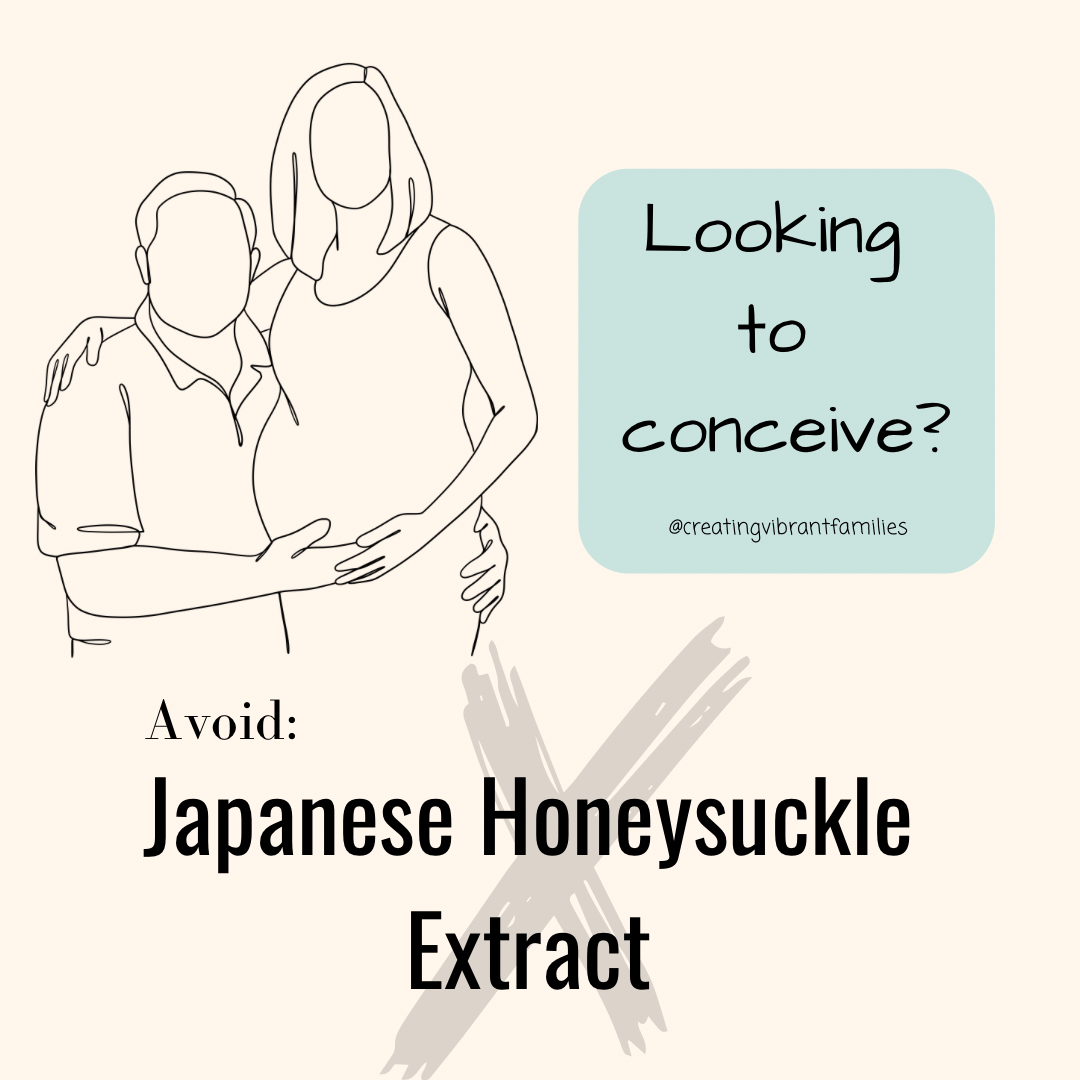The Hidden Dangers of Japanese Honeysuckle Extract
Japanese honeysuckle, revered for its fragrant blooms, has found its way into various products, including supplements and skincare. While it may seem harmless, recent concerns have emerged regarding the potential impact of Japanese honeysuckle extract on overall and reproductive health. In this blog post, we'll delve into the reasons to reconsider using products containing this extract, where it's commonly found, and key names to watch for on labels.
Understanding Japanese Honeysuckle Extract:
Japanese honeysuckle extract is derived from the Lonicera japonica plant and is often used for its purported anti-inflammatory and antioxidant properties. However, the extraction process may introduce certain compounds that could have adverse effects on health, particularly in the context of reproductive wellness.
Impact on Reproductive Health:
Recent studies suggest a possible connection between Japanese honeysuckle extract and disruptions in hormonal balance, which could potentially affect reproductive health. For individuals seeking to conceive, it becomes crucial to be aware of the potential risks associated with this commonly used extract.
Where is it Found?
Japanese honeysuckle extract can be found in various products, ranging from supplements to skincare items. It's essential for individuals, particularly those in their reproductive years, to be vigilant about the products they use daily. Common sources include dietary supplements, herbal remedies, and even beauty products.
Names to Look for on Labels:
To safeguard your health and reproductive well-being, it's important to recognize alternative names for Japanese honeysuckle extract on product labels. Some common names include Lonicera japonica, Japanese honeysuckle flower extract, and JHS (Japanese Honeysuckle Stem).
While Japanese honeysuckle has been traditionally valued for its medicinal properties, recent concerns about its impact on reproductive health highlight the importance of informed decision-making. As a consultant dedicated to enhancing the health of couples on the journey to conception it's crucial to use caution with this ingredient. In the pursuit of health before conception, being mindful of the ingredients in everyday products is a proactive step toward ensuring a healthy reproductive journey.


